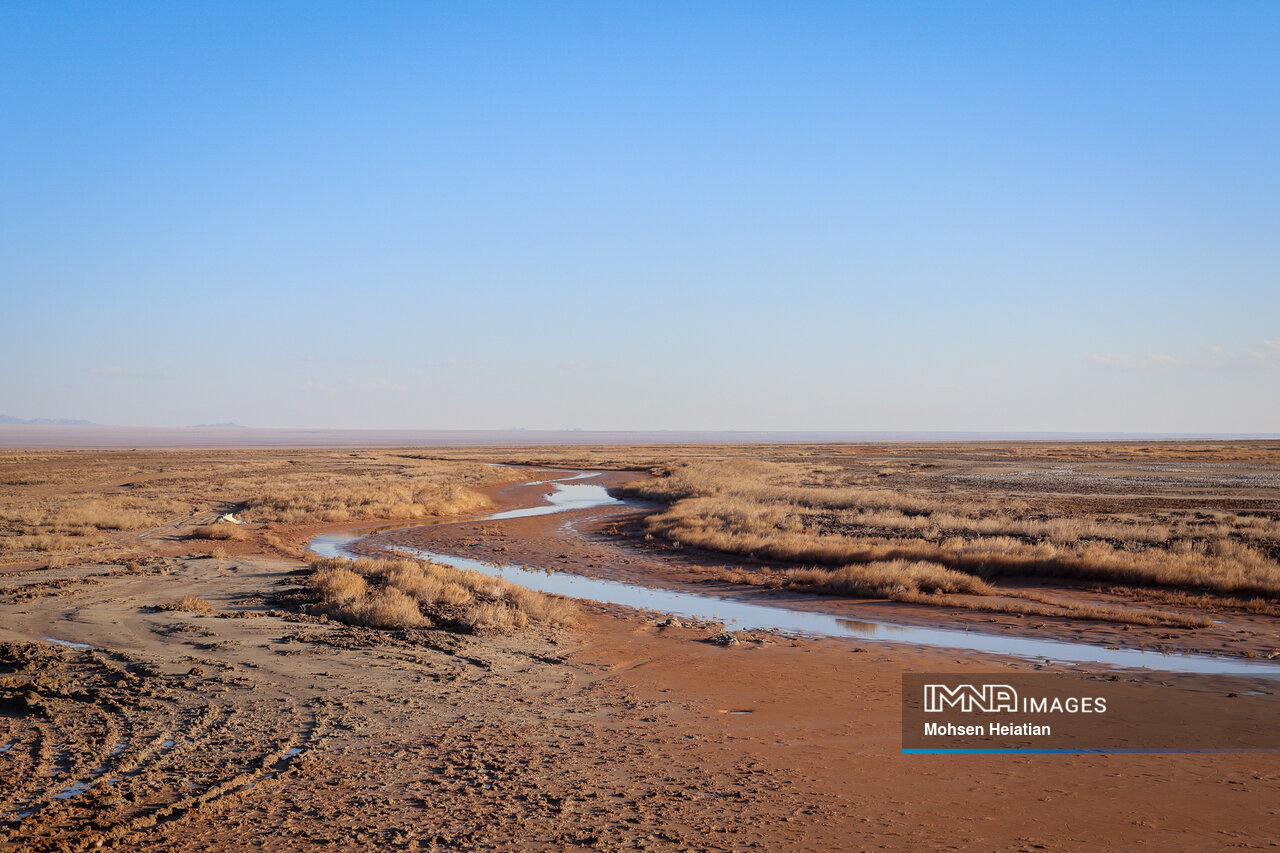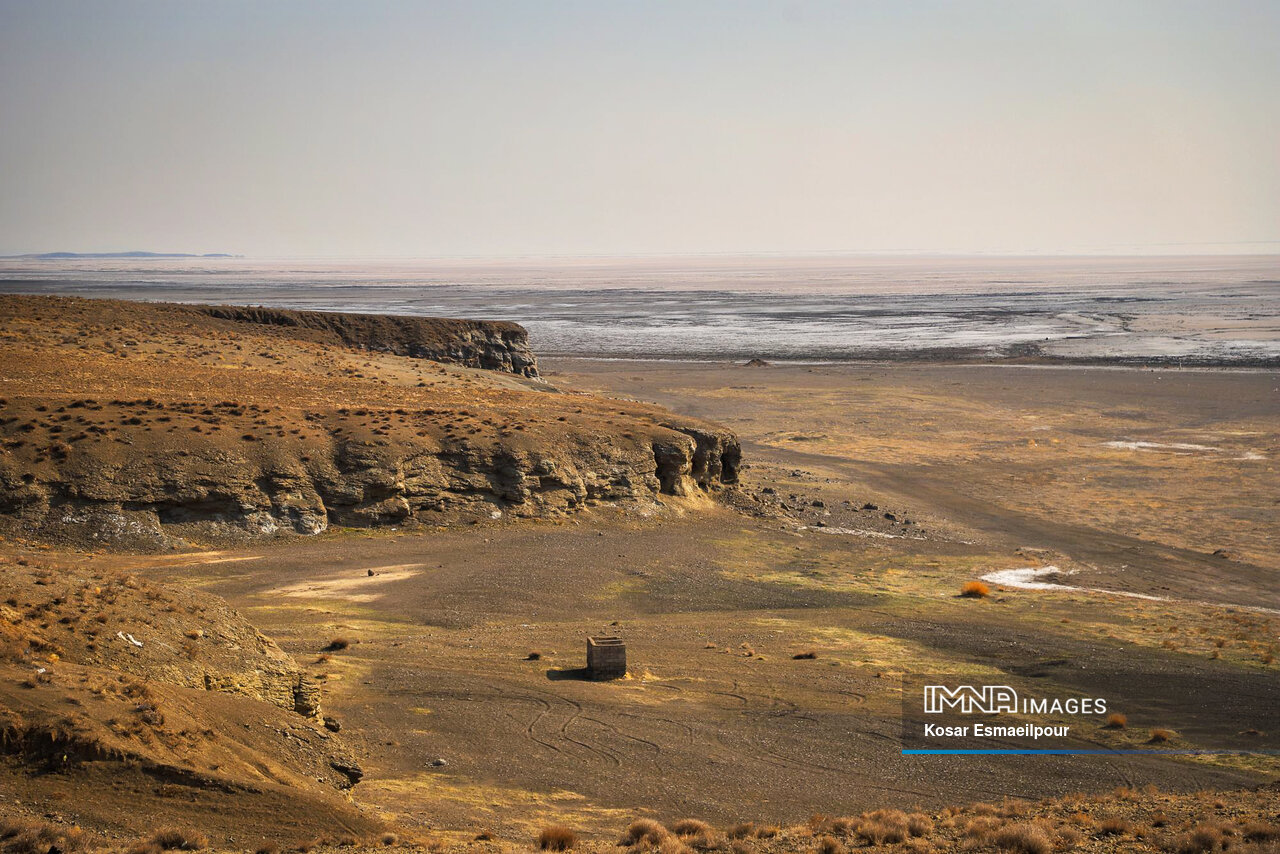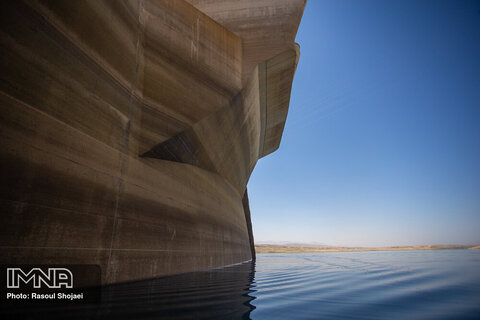Iran (IMNA) - Water stress is an issue in various regions across the country, with some on the brink of a water disaster. Climate change is now widely acknowledged as the most pressing environmental issue that societies must address.
Climate change has become a major global political issue in recent decades, prompting the UN and many other governments to take an active stance to tackling it.
Furthermore, a number of global conventions have been held with an emphasis on climate change, including the United Nations General Assembly, the Group of Seven (G7) conference, and the Conference of the Parties (COP) World Summit. These events continually raised and debated questions concerning the impact of climate change.

Impacts of Climate Change in Iran, Ignoring Environmental Guidelines Spells Dire Consequences
Due to the phenomenon of climate change, there has been a notable rise in air temperature. This increase in temperature has led to a higher rate of evaporation, which can be clearly observed in the reduced volume of water in the Caspian Sea.
According to data from the Meteorological Organization, the average air temperature in Iran has risen by approximately 2 degrees Celsius over the past 50 years. In simpler terms, our country's average air temperature has increased by 0.4 degrees every decade.
It is worth noting that the average minimum temperature has experienced a more significant increase compared to the average maximum temperature during the last five decades.
Additionally, there has been a noticeable decline in snowfall across the country, with a shift in precipitation patterns from snow to rain. However, the overall amount of rainfall has also decreased.
As a consequence of these changes, wetlands and rivers in the country have been experiencing a drying-up trend in recent years.
The primary causes of this issue can be attributed to the lack of water rights allocation and mismanagement of water sources. Nevertheless, it is undeniable that climate change has played a crucial role in exacerbating and accelerating this phenomenon.
Therefore, both climate change and the absence of water rights have contributed significantly to the impending drying up of Lake Urmia, which happens to be the largest inland water area in the country.

Another consequence of climate change on Iran's freshwater resources is the intrusion of saltwater into coastal aquifers. As sea levels rise due to global warming, saline water infiltrates underground freshwater reserves, rendering them unsuitable for human consumption or agricultural use. This intrusion of saltwater jeopardizes the availability of freshwater in coastal areas and poses a significant challenge for communities that rely on groundwater as their primary water source.
The detrimental repercussions of climate change have already manifested themselves within our country. Failure to undertake measures to acclimate ourselves to the aftermath of this phenomenon and adhere to environmental guidelines will undoubtedly yield even more perilous repercussions in the future, rendering the circumstances increasingly inhospitable for both humanity and various flora and fauna.
To mitigate the impacts of climate change on freshwater resources in Iran, it is crucial to prioritize sustainable water management practices. This includes implementing efficient irrigation techniques, promoting water conservation measures, investing in infrastructure for rainwater harvesting, and developing adaptive strategies to cope with changing precipitation patterns. Moreover, international cooperation and collaboration are essential in addressing climate change, as it is a global issue that requires collective efforts.
By recognizing the dangers climate change poses to freshwater resources in Iran and taking proactive steps to mitigate its impact, we can work towards ensuring a sustainable and secure water future for both Iran and the world.
It is imperative that our esteemed statesmen devote earnest consideration to matters pertaining to climate change and devise strategies to align with the tenets of sustainable development.
Should prompt action not be taken in due course, the adverse implications of climate change will persistently exacerbate, particularly engendering a dearth of potable water resources.


Your Comment